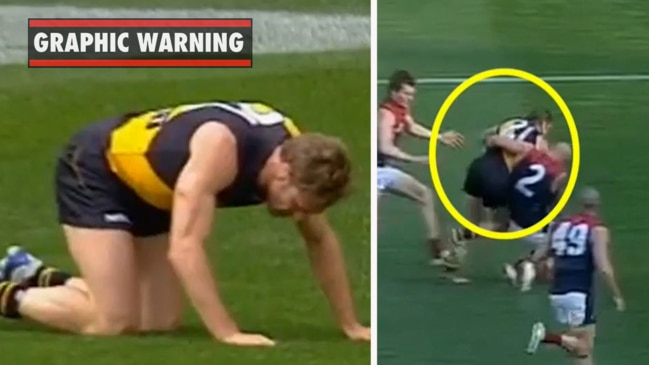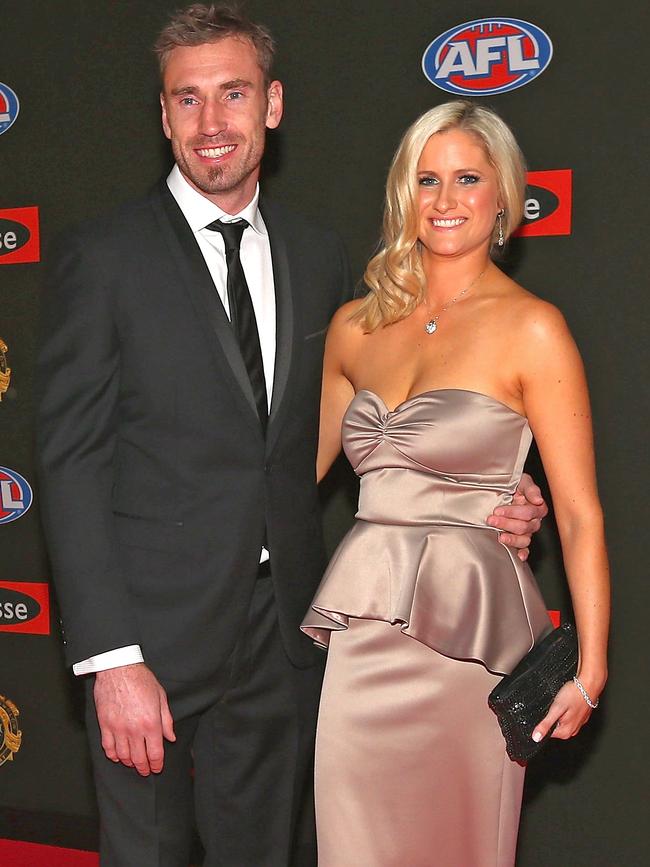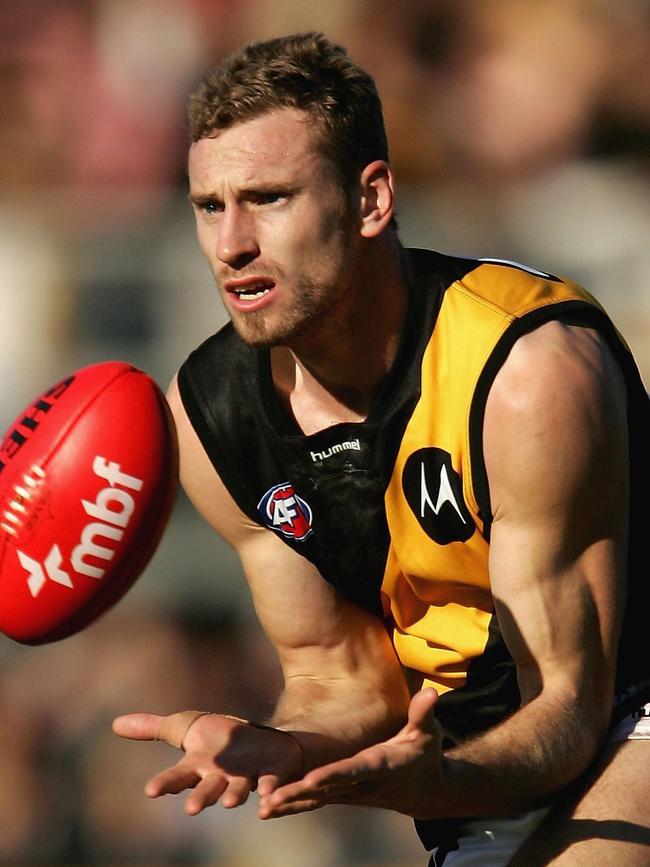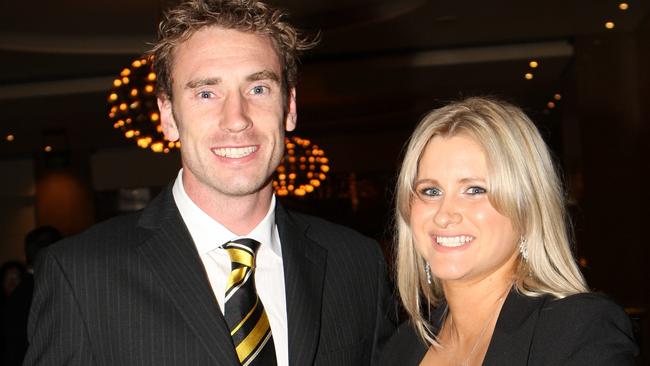Kat Tuck says Coroner has “glossed over’’ her husband Shane’s “tortured death”
The Victorian Coroner has not gone far enough to uncover what led to former Richmond footballer Shane Tuck’s severe brain damage and resulting death in 2020, his grieving widow says.

SA News
Don't miss out on the headlines from SA News. Followed categories will be added to My News.
The widow of footballer Shane Tuck, who died by suicide in 2020, says an inquest into her husband’s death has “glossed over’’ how he acquired the severe brain damage caused by concussions and other head knocks during his playing career.
Kat Tuck said while she was satisfied that Victorian coroner John Cain had concluded that Tuck had suffered from the concussion-related chronic traumatic encephalopathy, which had caused his acute mental health problems, she was disappointed he had “whitewashed’’ the impact of her husband’s 173-game AFL at Richmond.


“He was a professional player employed by the AFL, he died as a result of CTE, so what was the duty of care from his employer?’’ Adelaide-based Ms Tuck said.
“What happened in Shane’s playing time? And how did it lead to his tortured death? And I guess that hasn’t really been covered.’’
Tuck played for Richmond between 2004 and 2013 and Ms Tuck said it was probable the CTE emerged between 2006 and 2010 as a result of the numerous concussions and other head knocks he had endured during his career. Tuck was diagnosed with stage three CTE after his death aged only 38, but its symptoms include depression, paranoia and aggression.
In April, Ms Tuck, 42, withdrew from her participation in the inquest because of “grave concerns’’ she held over its conduct.
She said that decision had been vindicated by Monday’s coronial report.
“We felt it would be this kind of outcome that it wouldn’t look into Shane’s playing era and time and what happened to Shane,’’ she said.

During the inquest, Mr Cain said he would not be embarking “on an exercise that involves me apportioning blame as you’re seeking to have me do in relation to what the Richmond Football Club should or shouldn’t have done’’.
Tuck was one of four ex-VFL/AFL players posthumously revealed to have suffered from CTE, along with Graham Farmer, Murray Weideman and Danny Frawley.
In handing down his report, Mr Cain made recommendations to improve how the AFL handles concussion, including the introduction of independent experts at games and reducing the number of hours of full-contact training.
However, Ms Tuck’s lawyer Greg Griffin said it had been disappointing Mr Cain had refused to look at footage from Tuck’s long playing career that showed his frequency of concussion. He was also disappointed that US concussion expert Dr Robert Cantu, who gave evidence at the inquest, was not allowed to view it.
“Between 2004 and 2013, Dr Cantu has no idea of the framework and how the AFL allowed these numerous concussive hits on Shane and how they dealt with it,’’ he said.
Ms Tuck, who is lead plaintiff in a class action against the AFL, said it was a positive that the inquest had at least managed to “shine a light’’ on the damage of CTE and that would help “how other ex players are afflicted and dealing with this devastating disease’’.
She said the symptoms for Shane became “worse and worse’’ and he attempted twice previously to end his life. The couple had two children – Will, who is now 15, and Ava, who is 13.
“He was really tortured and it was awful to see him like that,’’ she said. “For a long time, you feel like you’re living a nightmare, because you’re just dealing with all this chaos and uncertainty.’’




